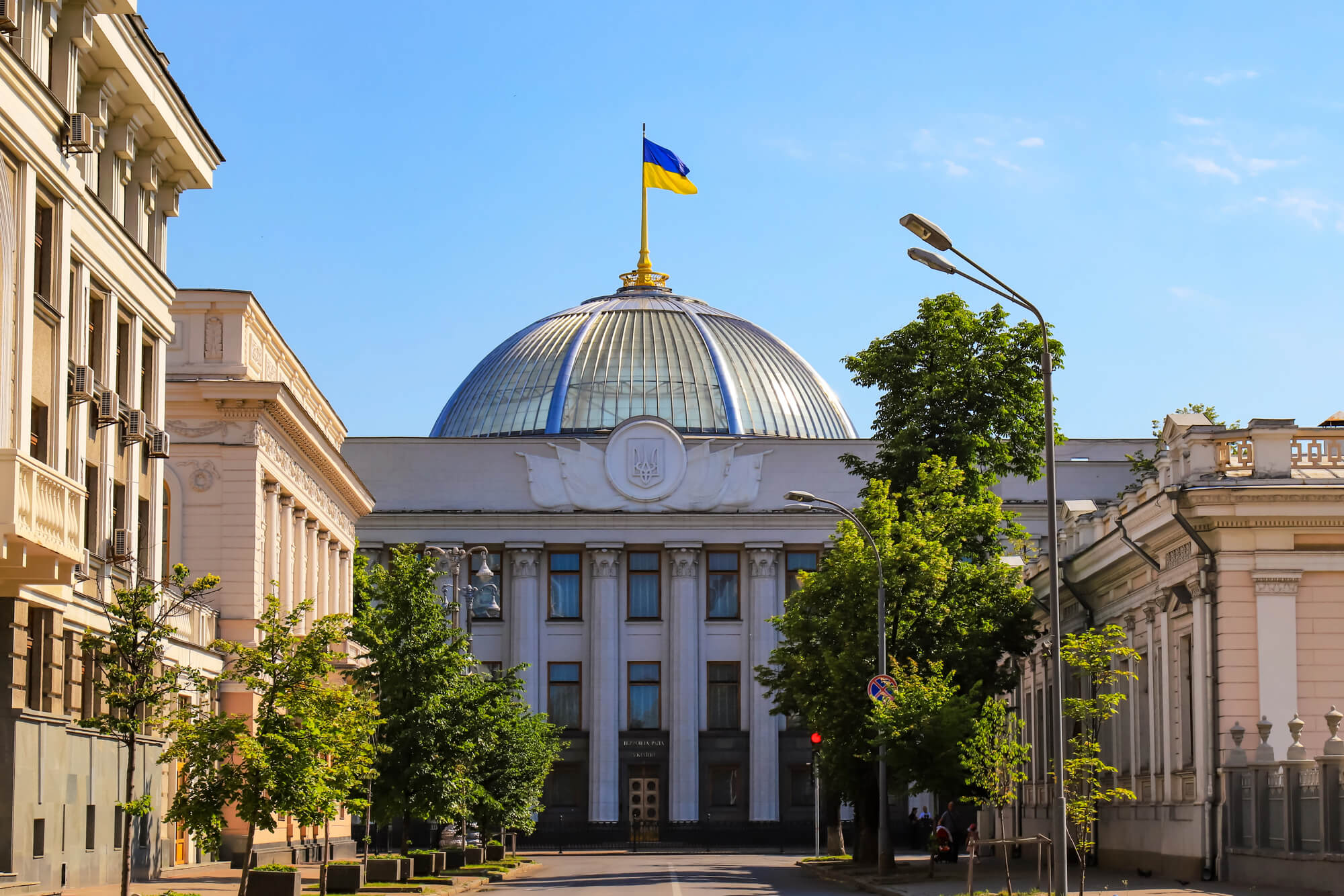Oligarchs have captured the Ukrainian state. However, they are more a symptom than the cause of the country’s crisis. That is why successful de-oligarchisation would not bring real progress, but only give rise to a new generation of oligarchs. What is needed instead is a political culture of transparency and accountability.
Oligarchs – a real pain
It is already for quite a long time established wisdom that oligarchs hold the real power in Ukraine. As in several other post-socialist countries, they had already in the late 1990s, to use the phrase of the then Chief Institutional Economist of the World Bank Joel Hellman, “captured the state”. Although the current political leadership of Ukraine has announced a policy of de-oligarchisation, many voters as well as experts still give the same diagnosis of state capture by oligarchs.
Petro Poroshenko, one of the country’s leading businessmen, has become president. Contrary to promises he made during the election campaign, he has not sold his major business. Ihor Kolomoyskyi, another billionaire who was initially close to Poroshenko, has demonstrated that even after a fallout with the president he can still milk state coffers. Even oligarchs closely linked to former president Viktor Yanukovich, like Rinat Akhmetov or Dmitro Firtash, are still around.
For the economy, the major problem with oligarchs is that their business is not based on competition on free markets but on shady deals with state support. The Economist has estimated in its crony-capitalism index that in 2016 a total of 85 percent of the wealth of Ukraine’s billionaires came from sectors of the economy dominated by rent-seeking. With this level of crony-sector wealth Ukraine ranks third globally. The related political problem with oligarchs is that their high dependence on illegitimate and partly illegal state support for their businesses forces them to use all means, mainly corrupt ones, to keep their influence in politics.
The related political problem with oligarchs is that their high dependence on illegitimate and partly illegal state support for their businesses forces them to use all means, mainly corrupt ones, to keep their influence in politics.
Who exactly is an oligarch?
Although everyone agrees that oligarchs are bad for Ukraine, it is not always clear who is perceived to be an oligarch. When President Poroshenko calls for de-oligarchisation, he is obviously not intending to purge himself from power. In political debates the typical definition seems to be that oligarchs are all those wealthy people in politics whom we do not like. This may be fine for election campaigns, but it prevents a sober analysis.
In the proper meaning of the word, an oligarch is a businessperson who uses political connections to promote business interests. This is different from a greedy politician who uses his office to get control over businesses in order to get rich or to make his family and friends rich.
This is why I suggest that the real litmus test for oligarchs is whether their power depends on their business or their political office. When Yanukovich lost his political office, he immediately lost his power and much of his fortune. The same is true for the group of his family members and friends. Akhmetov, on the contrary, continues to be influential, because being a true oligarch his power depends on his business not on political office.
This assessment leads to the conclusion that in order to get rid of the oligarchs, their business must be taken away from them. However, things are not that simple.
Systemic relevance
The first problem is that the oligarchs control many enterprises, which in today’s language of the global financial crisis would be called systemically relevant. When the Ukrainian state takes over Privatbank from Kolomoyskyi, it has to accept the related financial risks because they concern the bank’s ordinary customers more than the oligarch himself. When the state wants to wrestle control over energy companies from oligarchs, they can use loyal allies in the company management and their insider knowledge to fight back and threaten the state with the breakdown of vital infrastructure – and who would bet that they care enough about the country not to lead it into chaos? In the end, what is bad for the oligarchs is not necessarily good for the country.
Just a symptom
But the real problem goes far deeper. The oligarchs are just the attention-grabbing tip of the iceberg. In fact most of Ukraine functions in “oligarch mode” even when the big oligarchs are not around. Again there is a simple test: If oligarchs are the major problem, then reforms in areas where the oligarchs are not involved should be easy successes. However, as we know from health care over education to electoral law this is not the case. There are many vested interests opposed to reforms, not just big business but also many small businesses, corrupted state bureaucrats as well as politicians.
This leads to another conclusion. Ukraine’s governance system has been transformed into a rent-seeking mechanism. If some oligarchs lose their business and their political power, they will simply be replaced by others. Not only on the side of business, but on the side of the state as well many are looking for opportunities to get rich personally and not to make the country rich. This, by the way, is the assumption from which the debate about the US constitution started.
If some oligarchs lose their business and their political power, they will simply be replaced by others. Not only on the side of business, but on the side of the state as well many are looking for opportunities to get rich personally and not to make the country rich.
Democracy can fight back
The Federalist Papers, written in 1787/88 by three of the founding fathers of the USA, argue that political power can corrupt everyone and that responsible government, therefore, requires strong checks and balances to keep everyone in power under control. A pre-condition for checks and balances to work properly are transparency and accountability. To establish them it is clearly not enough to purge oligarchs from power. Such a move may even prove counter-productive as this kind of selected justice may give others the impression that they can continue with their corrupt practices.
However, in a country on the way to democracy transparency puts a heavy strain on the political culture. Ukraine’s new system of electronic wealth declarations by all important political and state representatives illustrates the related problem well. Of course, the declarations are an important step towards more transparency and may give a new impetus to the fight against corruption. But at the same time, the result of the declarations is that media reporting and public debates are presently even more focused on corruption than they were under President Yanukovych. The risk is that by exposing much dirt that had not been known earlier, but was nevertheless there, transparency does not create the basis for the fight against corruption, but mainly promotes a political culture of cynicism, which assumes that all politicians are equally corrupt and which is very vulnerable to populist anti-corruption crusaders who prefer loud accusations to sound strategies.
What is needed in such a situation is a new political culture, which is based on the idea that transparency has to be followed by accountability and that democracy is also “government by the people”, which means that the people themselves have to take care of politics, not just by voting and participating in revolutions, but by keeping up informed (!) political pressure day after day. Especially in a situation where the checks and balances of the political system, namely parliamentary and judicial control, are obviously flawed, only a strong and visible demand for specific, clear and consistent reforms coming from the voters themselves can counter a culture of corrupt governance.
Rules, rules, rules!
Accordingly, the main task is not to wrestle control over specific companies from specific oligarchs. The wealth declarations or the transfer of state procurement to the transparent online platform ProZorro are much more important reform steps in order to establish general rules of transparency and accountability for everybody. If these reforms are successful, oligarchs will sooner or later have to accept them and the new transparent and accountable ways of doing business – similar to the US robber barons of a century ago, who were brought under control not by political vendettas of the country’s president, but by the application of anti-trust law.
Attention
The author doesn`t work for, consult to, own shares in or receive funding from any company or organization that would benefit from this article, and have no relevant affiliations



